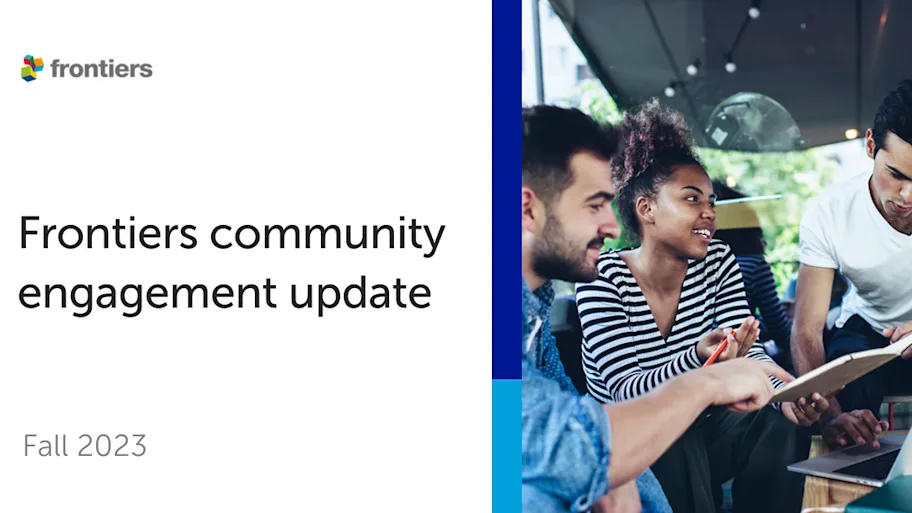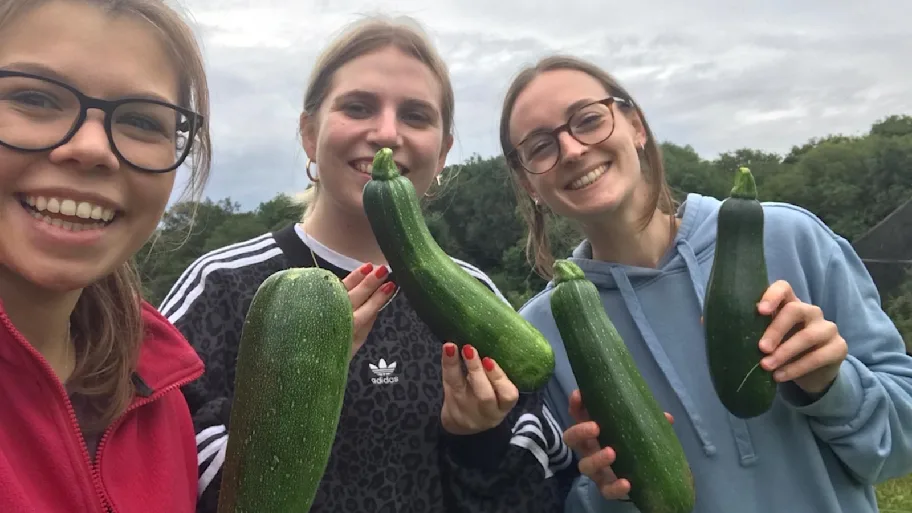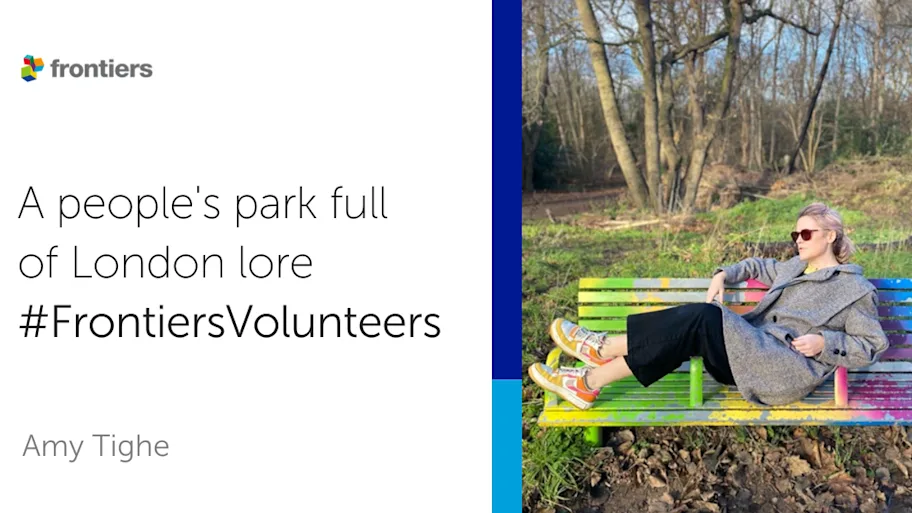
- Science News
- Frontiers news
- Frontiers’ Volunteers: Growing together oceans apart
Frontiers’ Volunteers: Growing together oceans apart
Frontiers’ volunteers have always been at the forefront of community and societal responses. Elisabeth Hordé shares her experience mentoring and growing together with student-athletes a continent away.

What is your background and role at Frontiers?
“I joined Frontiers in January 2022 as a project manager for our product operations team, which sits under the technology department. Since April 2023, I have also been chair of our Disability and Neurodiversity Employee Resource Group (ERG).
“Most of my career has been focused on project management when not deep diving into product or supporting change. I have worked in international organizations, startups, and multinationals. First, I evolved in publishing, then shifted towards fintech, and now I am positioned between publishing and tech thanks to Frontiers!”
What does the organization you volunteered for do?
“The athLEDA Foundation is a US-based organization that helps young student-athletes from underserved communities by connecting them with selected mentors. The idea is to help them see themselves as more than just athletes. athLEDA arise empowers student-athletes with a program that elevates their professional skills.
“The foundation fosters leadership and emotional intelligence while focusing on a STEM approach. Mentees can also find opportunities in all types of industries thanks to the mentorships provided.”
What did you do during your time volunteering?
“Volunteering with athLEDA is quite varied and fulfilling. This is my second year with them and there are three main topics I partake in:
Mentoring two students per year – meeting regularly, developing a trusted relationship, facilitating workshops, and personalizing each journey to advise and empower the first steps toward their professional life.
Content creation – contributing to the creation of athLEDA material such as the Mentors’ Toolkit and providing feedback to support the long-term development of the association.
Community – sharing content on a regular basis relevant to both mentors and mentees via the athLEDA app and participating in events remotely.”
What was your motivation for choosing this organization?
“When I explored the options on Alaya, I was conscious I would need to choose a remote activity due to time constraints. Nonetheless, I needed to have a ‘people’ experience. I had mentored in the past, and so I decided to take that path.
“My first call with the founders, Jelanna and Tracey, was so exciting; we instantly clicked. We recognized in each other the opportunities that could arise (no pun intended). There began my story as the only mentor ‘from the other side of the pond!’”
What did you learn from the experience?
“One of the first of my many learnings was from a cultural perspective. In fact, that was also one of my motivations for choosing athLEDA. I wanted to be challenged and knew a cultural gap would exist between us. Although I have two nationalities, and have traveled and worked in different countries, I did not know if mentees would choose me as their mentor. The community is open and welcoming, but this first step can rock your boat.
“Basically, the bigger the challenge (the Atlantic Ocean to virtually cross!), the bigger the motivation. I surprised myself with new ways to connect and bond. Mentees and mentors grow together. I find our constant questioning about the future fascinating and a core strength that we need to learn to ‘sail on’ and play with, rather than try to control at any cost.
“Additionally, something else I took away from the experience was the inspiration to step up and get involved in the newly created Disability and Neurodiversity ERG at Frontiers. I am so proud and grateful to chair a committee and group of volunteers that constantly blooms with ideas and grows in numbers!
“I am really thankful to athLEDA and each and every one of its members.”
What advice would you give to those looking to get involved in volunteer activities?
“I believe it’s important to volunteer because something resonates with you deeply or because curiosity is calling you and you want to learn something. I would never advise doing it to follow the lead or solely by a sense of duty. The impact we have when we do something because we mean it is extremely powerful and irreplaceable.
“Time is also very important to consider. Assessing the amount of time you can allocate beforehand allows you to plan and ensure that you will have a positive predisposition when starting the volunteering activity, and maybe even be able to look for the long term.
“Lastly, be kind to yourself: things don’t need to be perfect; people are already so grateful to see you join and share your time and knowledge!”
A great reminder that there are all sorts of opportunities out there, regardless of location. Way to overcome boundaries (or oceans), Elisabeth!
Frontiers is a signatory of the United Nations Publishers COMPACT. This interview has been published in support of the United Nations Sustainable Development Goals.
About Frontiers
Frontiers is the 3rd most-cited and 6th largest research publisher. We publish groundbreaking discoveries by the world’s top experts. Scientists empower society and our mission is to accelerate scientific discovery by making science open. We place the researcher at the center of everything we do and enable the research community to develop the solutions we need to live healthy lives on a healthy planet. Featuring custom-built technology, artificial intelligence, and rigorous quality standards, our research articles have been viewed more than 2.1 billion times, reflecting the power of research that is open for all.






